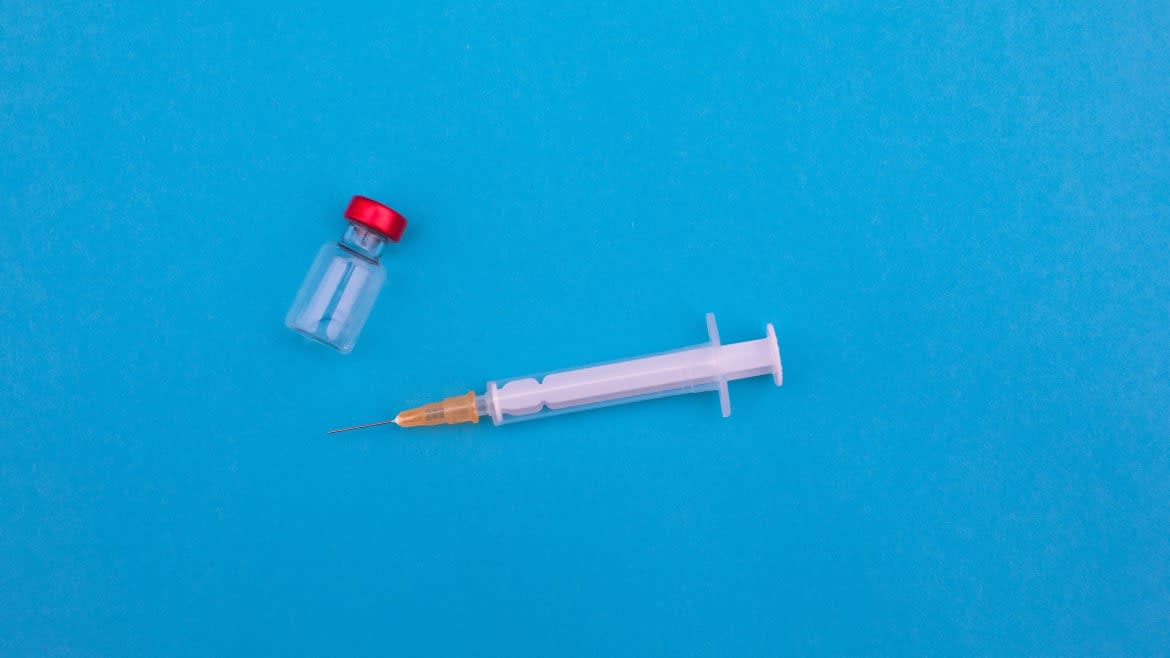These New Vaccines May Finally Eradicate Polio for Good

- Oops!Something went wrong.Please try again later.
There was once a time when polio raged like a wildfire through the U.S.. Outbreaks of the disease resulted in thousands of deaths and left tens of thousands of survivors with mild to severe paralysis. It wasn’t until the early 1950s that Jonas Salk developed the first polio vaccine. Over the next few years, hundreds of millions of doses were administered throughout the U.S. and, eventually, the world.
While we haven’t seen polio rise to the disastrous levels of the past, a version of the poliovirus called Wild poliovirus (WPV) type 1 is still endemic in Afghanistan and Pakistan, according to the U.S. Centers for Disease Control and Prevention. On top of that, there are WPV types that have evolved from the vaccine and circulated in human populations.
“Improving vaccines that are proven to prevent disease and stop pathogen transmission, is less glamorous than developing new vaccines, but perhaps more important,” Raul Andino, a virologist at the University of California in Berkeley, told The Daily Beast in an email. He added, “We think that the technical improvements can help to control poliomyelitis and poliovirus epidemics in the long run.”
This Vaccine Could Turn the Tides Against Deadly Pancreatic Cancer
Andino and a team of researchers published a study Wednesday in the journal Nature that found two new polio vaccine candidates that could help fight against these pernicious strains of the virus. The authors said that the vaccines are less likely to cause new poliovirus variants to emerge from the jab.
For this study, the researchers looked at the novel oral type 2 polio vaccine (nOPV2). This has been shown to cause a strong immune response in clinical trials while remaining genetically stable and less likely to cause an emergence of new variants.
The team then leveraged the approach used to develop nOPV2 to create vaccines for WPV types 1 and 3 called nOPV1 and nOPV3. All three vaccines were shown to cause a robust immune response in mice against all three types of poliovirus. The jabs were also shown to be safe for the animals as well.
We're Fighting Polio With Sewage Surveillance
“The new vaccine candidates are genetically more stable than previous poliovirus vaccines. This means that they are less likely to regain fitness and cause vaccine-associate disease,” Andino said. “This is certainly one of the safer medical interventions ever developed. So if vaccination campaigns are conducted properly, any issues associated with vaccination are unlikely to occur.”
Andino added that “clinical trials are on their way” and public health authorities will soon be armed with better tools to help eradicate polio for good. However, he cautioned that these vaccines can only be effective if there’s a good deployment strategy—a lesson that the world has already learned with the COVID-19 pandemic.
“The primary challenges are social, economical, and cultural problems that prevent good vaccination campaigns,” he explained. “Designing safe and effective vaccination strategies is critical for the medicine to work.”
Get the Daily Beast's biggest scoops and scandals delivered right to your inbox. Sign up now.
Stay informed and gain unlimited access to the Daily Beast's unmatched reporting. Subscribe now.

